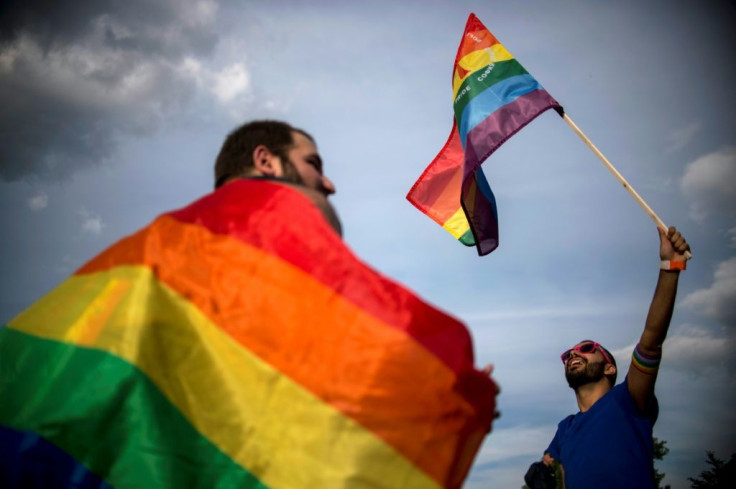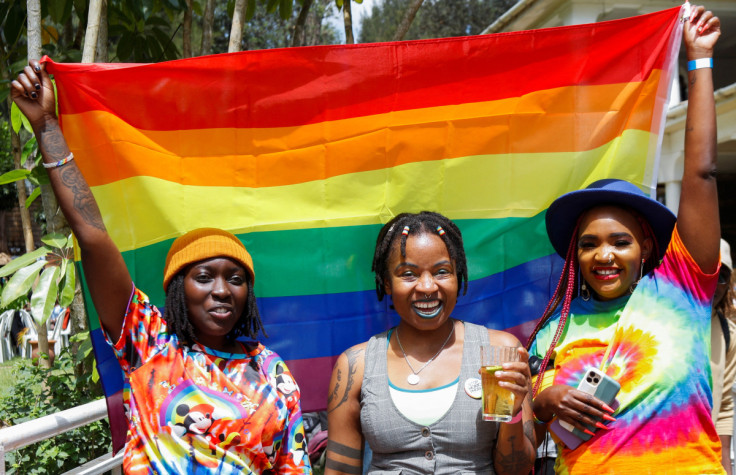Teen Claims TikTok Wrongfully Convinced Her She Was Trans, Detransitions After Two Years

KEY POINTS
- The girl said she saw influencers saying on TikTok that transitioning saved their lives
- The teen detransitioned after two years, claiming she was wrongfully convinced she was transgender
- The girl and her parents are advocating for an age limit of 18 for gender-affirming care
A 16-year-old girl has claimed that TikTok videos "brainwashed" her into believing she was transgender and led her to transition to male.
Ash Eskridge, of Missoula, Montana, turned to TikTok for emotional support when she began to suffer depression at the age of 12. She claimed that watching videos of several influencers on the platform saying that transitioning saved their lives led her to believe she too should transition.
"I was struggling and wanted it to save my life, too," she told South West News Service.
Reflecting on her experience, Eskridge claimed to the New York Post that she noticed a surge in videos about being transgender on TikTok in recent years, particularly those targeting vulnerable teen girls between the ages of 12 and 14.
She said she believes that only 1% of trans teens on TikTok are actually transgender and suggested that the majority were "influenced" by the social media trend.
"Being transgender is definitely a TikTok trend that all began around 2020," she told The Post.
Research from the Pew Research Center in 2022 indicated that TikTok has a significant impact on up to 67% of teenagers aged 13 to 17. A 2021 study by China's Shanghai United International School highlighted the platform's tendency to promote "over-exaggeration content" that can shape teenagers' values in a misguided manner.
Additionally, a December 2022 report by the Center for Countering Digital Hate revealed that TikTok's algorithm often exposes adolescents to mentally and emotionally damaging content within minutes of creating a profile.
In Eskridge's case, while her parents expressed doubts about her transgender identity, they supported her decision to live as a male.
During an interview with SWNS, Eskridge's mother Darcy said, "She told us she was trans. It was after COVID, and she was at home a lot. She started spending too much time on TikTok, watching influencers who were saying how they went through the same thing [and] how they had transitioned and it made them happy."
Eskridge legally changed her name to "Greysen" and underwent physical changes by taking testosterone, which caused her voice to become lower and her body hair to sprout. But she said she felt uncomfortable rather than affirmed following the changes.
"It was exhausting," revealed Eskridge, who said she eventually realized that she "missed being a girl."
Eskridge started detransitioning and reverting back to female in April.
"My breaking point was when I had a dream that I was a girl," said Eskridge. "I thought, 'I can't do this anymore.'"
However, the process proved challenging, leading to strained relationships with friends who were unaware of her true gender identity.
"They thought I was born a man. After I detransitioned, I lost a lot of friends." Eskridge shared.
Gender dysphoria in children has seen a significant increase in recent years. Research showed that the number of minors identifying as transgender has nearly doubled since 2017.
According to studies, 86% of those who transitioned stayed with their decision, while the remaining 14% detransitioned, citing external factors such as family pressure, job difficulties, and doubts about gender identity as their reasons.
Eskridge and her parents are now advocating for better mental health care for teenagers and are calling for a law requiring an age limit of 18 to receive gender-affirming care.
Eskridge has also become an advocate for detransitioning on TikTok, where she shares her own experience and urges caution when considering life-altering decisions.
As Eskridge continues to share her story, she said she hopes to prevent others from experiencing the same challenges she faced and to promote a more nuanced and informed conversation surrounding gender identity and mental health on social media platforms like TikTok.
It isn't the first time that TikTok was blamed for the rise in gender ideology.
A few months ago, Fox News reported a similar story about a former trans woman, who claimed that he transitioned "during the height of my TikTok addiction."

© Copyright IBTimes 2024. All rights reserved.





















